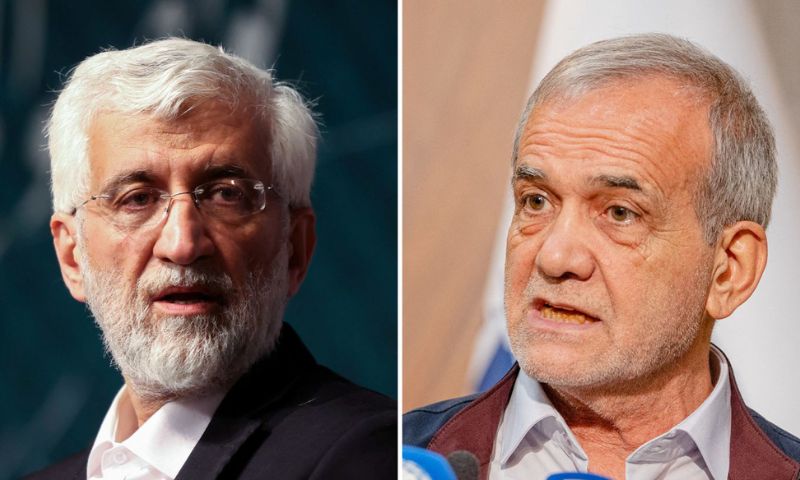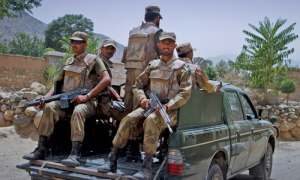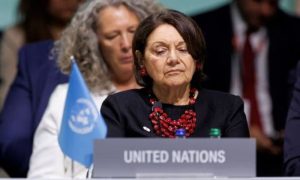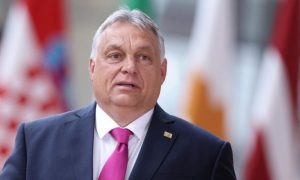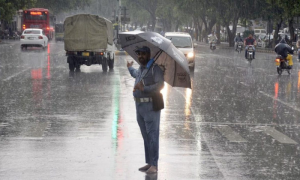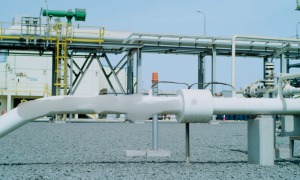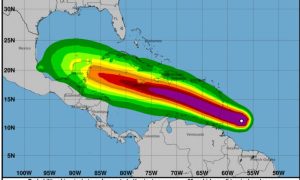TEHRAN: Iran’s presidential election is set for a runoff between reformist candidate Masoud Pezeshkian and ultraconservative Saeed Jalili, officials announced on Saturday, following a first round marked by historically low turnout.
Masoud Pezeshkian, 69, emerged as the frontrunner in the initial voting round with 42.4 percent of the vote, while Saeed Jalili, 58, secured 38.6 percent, according to Mohsen Eslami, spokesman for Iran’s elections authority. Parliament speaker Mohammad Bagher Ghalibaf trailed with 13.8 percent, and the remaining candidate, conservative cleric Mostafa Pourmohammadi, garnered less than one percent.
Due to none of the candidates achieving an absolute majority, Pezeshkian and Jalili will compete in a runoff scheduled for next Friday, July 5.
The turnout for Friday’s election was notably low, with slightly over 40 percent of Iran’s 61 million eligible voters participating — a record low for the Islamic republic. Additionally, more than one million ballots were spoiled, highlighting widespread discontent.
This election, initially scheduled for 2025, was moved up following the tragic death of President Ebrahim Raisi in a helicopter crash last month.
Before the election, the Guardian Council approved six candidates, but two prominent figures withdrew just ahead of the vote: mayor of Tehran Alireza Zakani and Raisi’s vice president Amir-Hossein Ghazizadeh-Hashemi.
Following the announcement of the results, both Pezeshkian and Jalili received endorsements from their former rivals. Mohammad Bagher Ghalibaf urged all supporters of “revolutionary forces” to unite behind Jalili in the upcoming runoff.
The election unfolded against a backdrop of heightened regional tensions, including the Gaza conflict, disputes over Iran’s nuclear program with Western nations, and internal dissatisfaction over the country’s sanctions-battered economy.
Supreme Leader Ayatollah Ali Khamenei had called for high voter turnout, but opposition groups, particularly abroad, called for a boycott, questioning the legitimacy of the election process.
Masoud Pezeshkian, a heart surgeon and longtime parliamentarian representing Tabriz, has positioned himself as a reformist candidate. He served as health minister under President Mohammad Khatami and has criticized the lack of transparency in recent government actions.
During his campaign, Pezeshkian advocated for improving relations with Washington and European nations to alleviate Iran’s international isolation.
His rival, Saeed Jalili, is a former nuclear negotiator known for his staunch anti-Western stance. Jalili has held significant roles within Iran’s government, including in Ayatollah Khamenei’s office and the Supreme National Security Council.
Regardless of the election outcome, Iran’s next president will be tasked with implementing state policies set by the supreme leader, who holds ultimate authority in the country.









